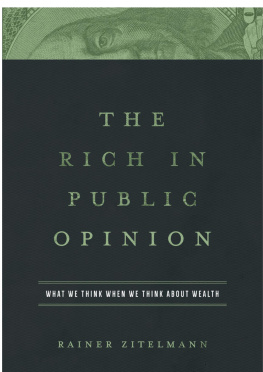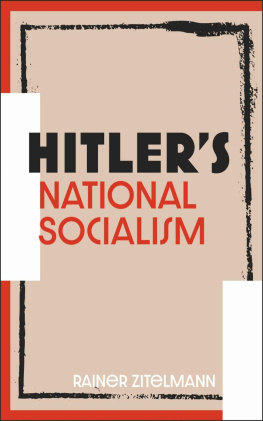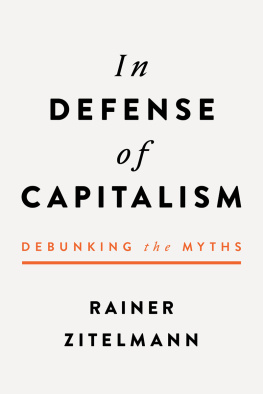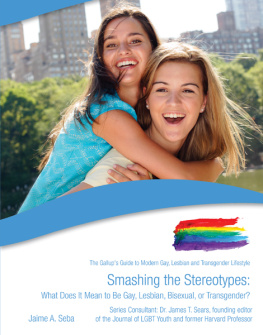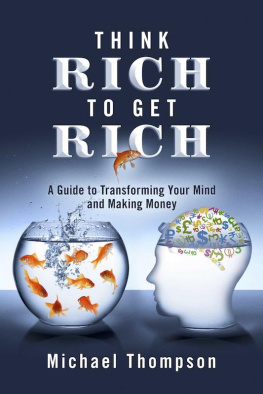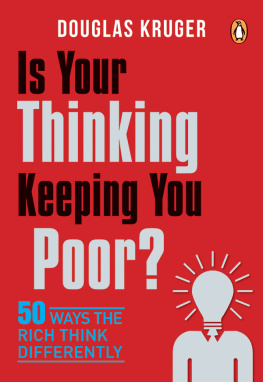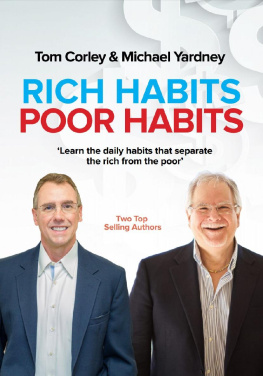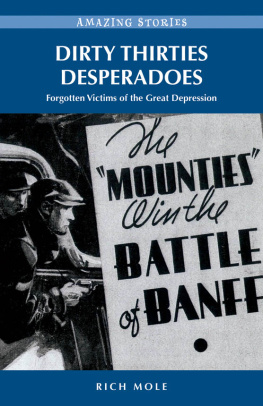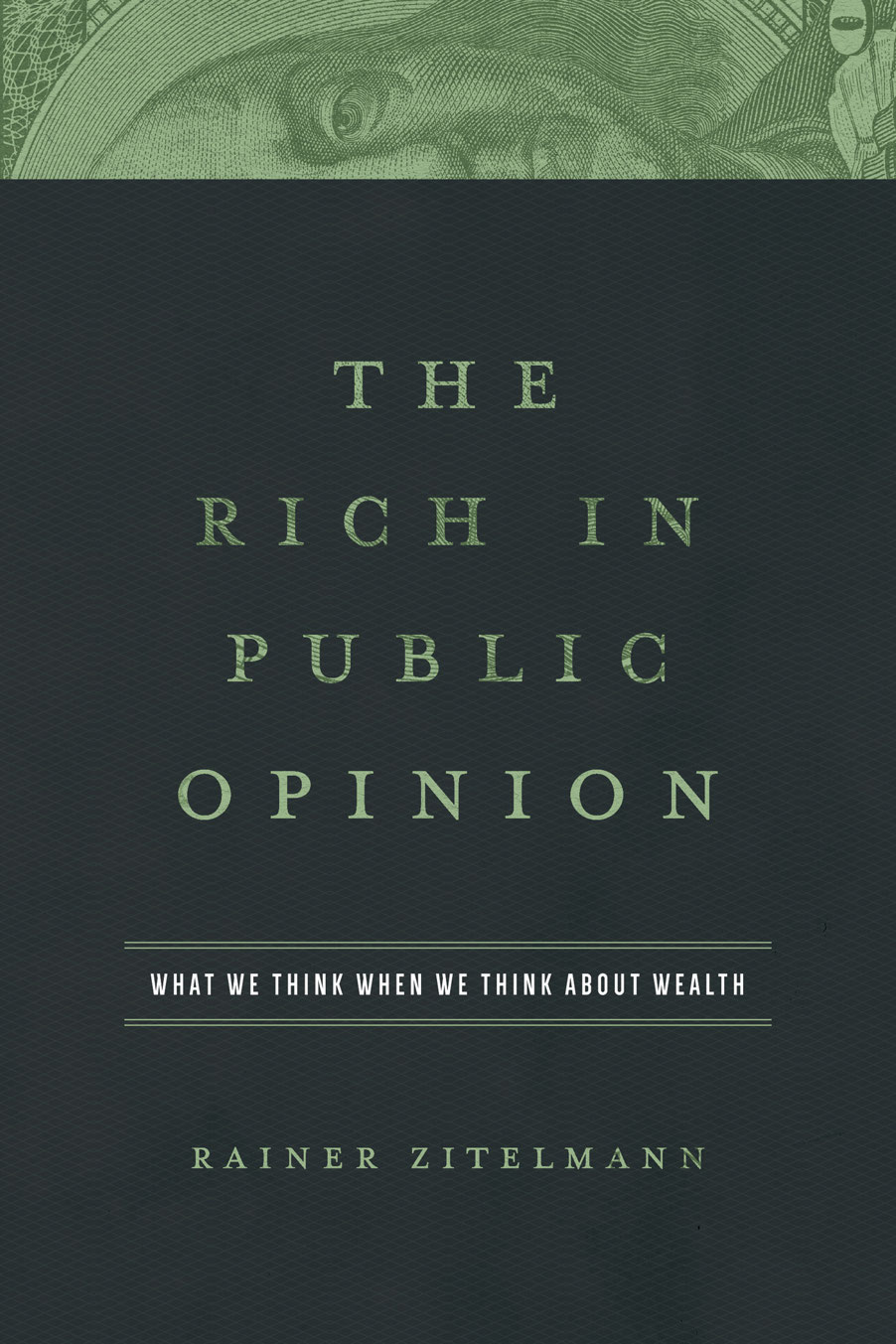THE RICH IN PUBLIC OPINION
praise for
THE RICH IN PUBLIC OPINION
We live in a hyper-woke day and age, the age of no-platforming and cancel culture, characterized by elaborate speech codes, tight constraints on what we are allowed to say in public, and potentially steep social penalties for transgressions. Unless, of course, you are engaging in upward classism, one of the few remaining forms of negative stereotyping that are not just socially acceptable but often positively socially encouraged. Rainer Zitelmanns book has to be the most thorough and comprehensive account of this phenomenon to date. Zitelmanns writing is accessible and jargon-free yet remains academically rigorous throughout. Commendably, the author manages to steer clear of polemicizingalthough he must have been tempted more than once. This is a timely and relevant book, not least because while eat-the-rich rhetoric may be good politics, it is demonstrably a poor guide to policy.
Kristian Niemietz, head of political economy, Institute of Economic Affairs
This is a very timely book about the rarely mentioned prejudice, classism, and denigration of those with wealth and status. Zitelmann systematically and scientifically explores why this attitude is so pervasive. To some degree, he says, it derives from the zero-sum fallacy, the belief that the rich create problems and poverty for others in order to become rich. In fact, as he shows, the rich contribute hugely to the well-being of society. This book is a timely correction to a pervasive but negative view of high achievers.
Madsen Pirie, president, Adam Smith Institute
Rainer Zitelmann exposes, dissects, and quantifies the twin vices of envy and covetousness. For many, the desire to have what others possess and the accompanying frustration-driven hatred directed at the people who have what you wish to seize have fused into a political program. Under many names through countless centuries, every society has had more or fewer members consumed by these powerful prejudices. Most importantly, Zitelmanns book makes it undeniable that irrational hatred and bias against the rich is as real, palpable, and dangerous as racism, religious bigotry, and tribalism. In a world well convinced that religious bigotry, racism, and tribalism exist and deserve repudiation, Zitelmann adds one more nasty -ism: upward classism, the envy and covetousness directed at the successful and wealthy. Using serious scholarship, he exposes this vice, quantifies it, and makes it impossible for future generations to ignore: Atlas Shruggedwith numbers and footnotes.
Grover Norquist, president, Americans for Tax Reform
This book is not just another book with a series of ideas, philosophies, and a boring central thesis: it is dynamite! Zitelmann is a bias-breaking machine. He destroys empirically and logically the virtue-signaling arguments that so often attack the rich. Rich people are a minoritya minority that, through risktaking and delayed consumption, allows billions of us to have jobs, to feed our families, and to have more goods and services at our disposal compared to previous generations. Zitelmann does a superb job of revealing the media and public bias against the very people that allowed most of the world to overcome poverty and reach the middle class. An important contribution that sets the record straight!
Wolf von Laer, CEO, Students for Liberty
Rainer Zitelmanns study offers a fascinating insight into a much overlooked yet often criticized minorityrich people. However, this book is more than just a thorough account of the prejudices and stereotypes against affluent individuals in different countries. It also raises the awareness for the general biases of the media against the people who have created value not only for themselves but especially for the society they live in. This makes the book a great read for everyone interested in the intersection of sociology and economics.
Frank Schffler, president, Prometheus
Das Freiheitsinstitut, Berlin
THE RICH IN PUBLIC OPINION
WHAT WE THINK WHEN WE THINK ABOUT WEALTH
RAINER ZITELMANN
Copyright 2020 by the Cato Institute.
All rights reserved.
The Rich in Public Opinion was originally published in Germany as DIE GESELLSCHAFT UND IHRE REICHEN: VORURTEILE BER EINE BENEIDETE MINDERHEIT. 2017 Rainer Zitelmann.
Translated by Sebastian Taylor, Capital Language Solutions.
Print ISBN: 978-1-948647-67-0
eBook ISBN: 978-1-948647-68-7
Library of Congress Cataloging-in-Publication Data.
Zitelmann, Rainer, author.
The rich in public opinion : what we think when we think about wealth / Rainer Zitelmann.
Gesellschaft und ihre Reichen. English
pages cm
Includes bibliographical references and index.
ISBN 9781948647670 (hardback) | ISBN 9781948647687 (ebook)
1. Rich peoplePublic opinion. 2. WealthPublic opinion.
3. Social classes. 4. Prejudices.
LCC HT635 .Z5813 2020 (print) | LCC HT635 (ebook)
305.5/234dc23 2019051409
Cover design: Lindy Martin, Faceout Studio
Jacket imagery: Shutterstock
Printed in Canada.
CATO INSTITUTE
1000 Massachusetts Avenue NW
Washington, DC 20001
www.cato.org
CONTENTS
PREFACE
For this book, the polling firms Ipsos MORI and the Allensbach Institute conducted identical surveys in Germany, the United States, France, and Great Britain on attitudes toward the rich. The surveys first question was used to determine the extent to which society would tolerate critical opinions of various social groups, especially critical opinions related to minorities.
The interviewees were given a list of various minorities: Muslims, immigrants, Jews, blacks, homosexuals, disabled people, people receiving welfare benefits, unemployed peopleand people who are rich. Women and Christians were also listed. Which of these groups, the respondents were asked, do you need to be careful not to criticize in public? Respondents in each of the four countries felt that publicly criticizing people who are rich was the least problematic, or nearly so. On the other hand, 67 percent of interviewees in Germany and France, 59 percent in Great Britain, and 56 percent in the United States said that you have to be careful when criticizing Muslims in public.
However, the point here is not about criticism of individuals, but about the extent to which it is socially acceptable to voice sweeping negative statements about certain groups, or even to place them under general suspicion when some of their members violate social norms.
Consider the following example: For years, individuals with Islamic backgrounds have committed terrorist attacks in these and other countries. In the aftermath of such attacks, politicians and journalists regularly and emphatically warn against placing Muslims under a general suspicion, with the media insisting that not every Muslim is a terrorist. The majority of Muslims, the media reiterates, are peaceful, law-abiding citizens.
In contrast, when reporting scandals involving executives who received generous severance packages despite their failures, or bankers who received massive bonuses despite their unchecked risk taking, or some rich people who legally avoidedor illegally evadedtax payments, the media almost never caution against generalizations or warn that rich people, executives, or bankers should not be placed under general suspicion. On the contrary, such cases are often subject to sweeping generalizations, as the media analysis in Part Three of this book shows.
Next page
